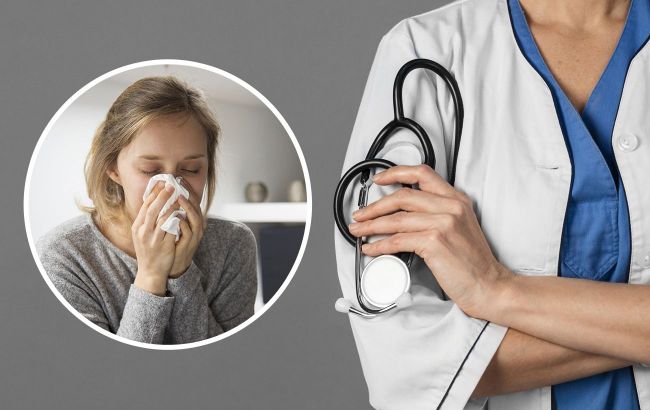Avoid treating cold with these remedies: doctor's tips
 How you shouldn't treat acute respiratory viral infections (Collage RBC-Ukraine)
How you shouldn't treat acute respiratory viral infections (Collage RBC-Ukraine)
Cough and cold are usually caused by viruses, and they typically pass on their own within a week, says pediatrician Dmytro Mushtyn.
In particular, according to him, certain remedies are ineffective in treating acute respiratory viral infections (ARVI).
Antiviral drugs
Antiviral medications are not indicated and are ineffective for treating respiratory infections.
Antibiotics
Antibiotics play no role in treating the common cold. They do not alter the course of a cold or prevent secondary complications but can cause significant side effects and contribute to the development of bacterial antibiotic resistance. Antibiotics should be reserved for clearly diagnosed secondary bacterial infections, including bacterial ear infections, sinusitis, or pneumonia.
Expectorants and mucolytics
Leading pediatric organizations do not recommend the use of these medications in children under 6 years old. The risk of side effects outweighs the potential positive effects. Increasing mucus production can make it difficult for a child to cough it up, especially in younger children who lack the necessary muscle strength for effective coughing.
Antihistamines (anti-allergic drugs)
They are not recommended for treating the common cold. Randomized trials have shown that antihistamines are not effective in relieving nasal symptoms or cough in children with colds. However, these drugs may cause side effects.
Bronchodilators (Berodual, Nebutamol, Ventolin)
They are not effective for acute cough in children without asthma.
Vitamin C
Vitamin C is not recommended for treating colds in children. In a meta-analysis of randomized trials in 2013, vitamin C (≥200 mg/day) initiated after the onset of symptoms did not reduce the duration or severity of the cold.
Zinc
The effectiveness of zinc in reducing the duration or severity of cold symptoms in children remains unclear, and side effects are common.
Echinacea
It is not recommended for treating colds in children. A randomized trial involving children (aged 2 to 11 years) found no differences in the duration or severity of cold symptoms in children receiving echinacea compared to a placebo.
Homeopathy
A systematic review found no evidence to support the use of homeopathic remedies for treating respiratory infections.
It's important to note that supporting a child's immune system through a healthy lifestyle, including a balanced diet, adequate sleep, and good hygiene practices, is crucial for preventing and managing respiratory infections. Always consult with a healthcare professional before considering any medications or treatments for children.
This material is for informational purposes only and should not be used for medical diagnosis or self-treatment. Our goal is to provide readers with accurate information about symptoms, causes, and methods of detecting diseases. RBС-Ukraine is not responsible for any diagnoses that readers may make based on materials from the resource. We do not recommend self-treatment and advise consulting a doctor in case of any health concerns.

